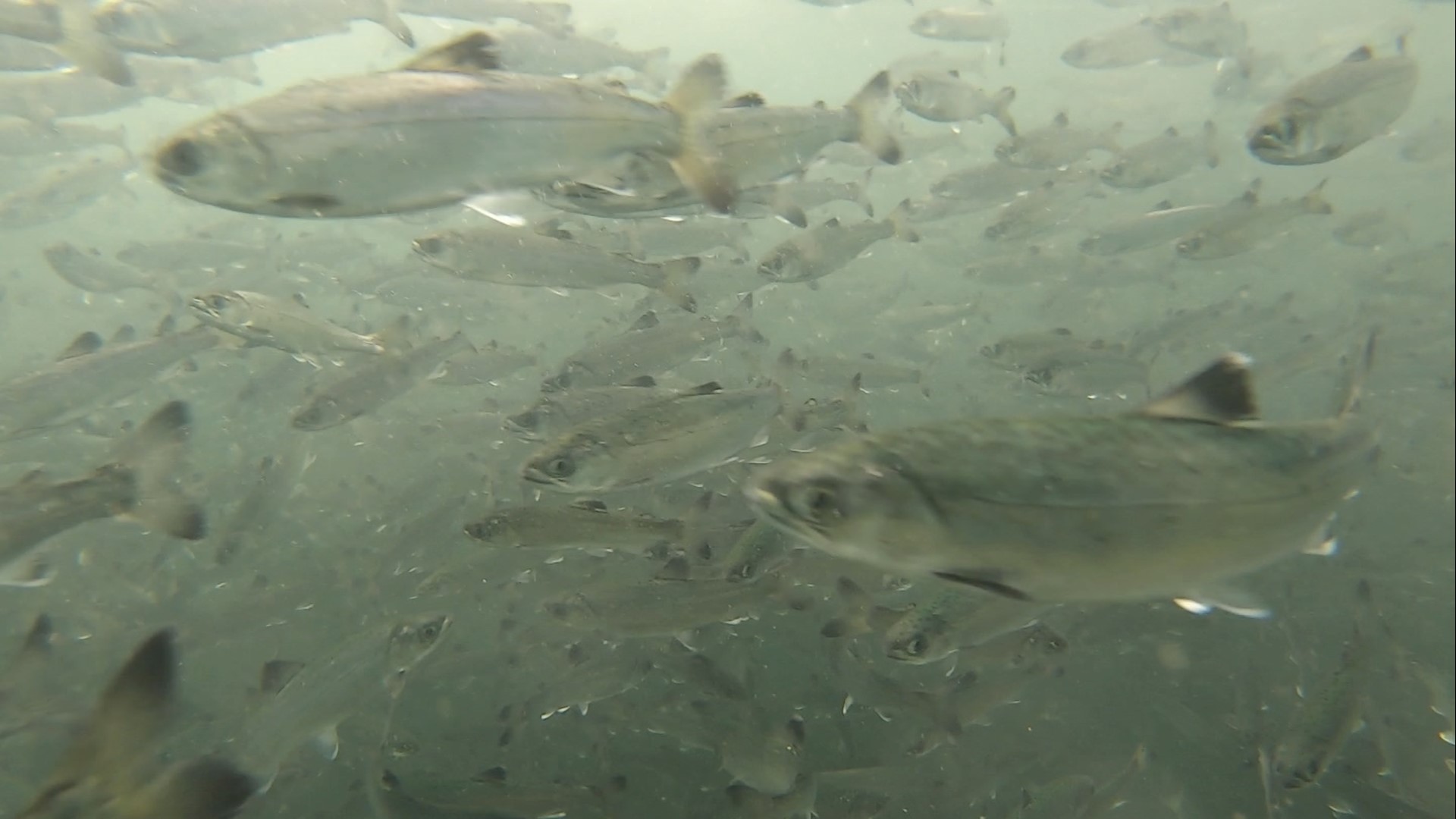SEATTLE — Puget Sound is an endangered beauty.
"More people, the more demand on water, the more demand on water quality. And, so far, we’re losing more habitat than we’re restoring," said Suquamish Tribe Fisheries Director Rob Purser.
The local salmon populations have declined as much as 90% from their historic levels.
"The habitat that supported all the coho runs that the tribes historically fished don’t exist anymore," biologist Mike Huff said.
The original stewards of these sacred waters are leading the effort to defend them. For nearly 30 years, the Suquamish and Muckleshoot Tribes have combined efforts to bring coho back to Puget Sound.
"We raise these fish to replace the ones that don’t exist anymore," Huff said.
Each spring, they stock two Elliott Bay fish pens, each nearly as large as an Olympic-sized pool, with healthy juveniles from an inland hatchery to prepare them for a life at sea.
"That’s to acclimate the coho from that freshwater to saltwater transition," said Casey Schmidt, director of natural resources for the Suquamish Tribe.
Here, protected from predators for a full three months, they’re given a chance to thrive.
"We feed them. They triple in size," Schmidt said. "And that allows them to be really healthy when they go out into the Puget Sound. "
Purser added, "Just by growing them to a larger size before they’re released, the survival rate goes way up."
Purser, who is also a tribal elder, stresses the cultural importance of a healthy fish population, which provides a traditional living for Indigenous fishers.
"This is the backbone of our culture," Purser said, as he and his crew prepared to release nearly 1 million healthy fish into Puget Sound.
"It’s a good experience for us," he said.
When a side of each net pen is opened, the salmon head instinctively to sea.
"We get good fish survival," Schmidt said, "and it gives a chance for a lot of fishermen to catch these fish and to feed the orcas. It’s a feel-good story, I think."
This is Huff's 22nd and final salmon release for the Suquamish Tribe, as he heads into retirement.
"It’s time for the 'young kids' to take over," Huff said.
But the work goes on, bringing new life to a threatened ecosystem and building on tradition to secure a healthy future.
"It’s a good feeling. It’s kind of like a goosebumps feeling," Schmidt said, "seeing the fish jumping and realizing that now there’s about a million more fish in the Puget Sound than there were yesterday. It’s a good feeling."
KING 5's Evening celebrates the Northwest. Contact us: Facebook, Twitter, Instagram, or Email.

